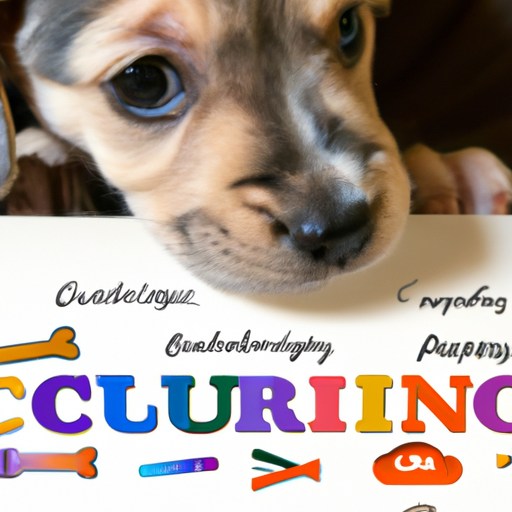As a caregiver, you might have noticed that your puppy has begun to chew on everything in sight. It’s an adorable yet challenging time, as this behavior is a sign that your little four-legged friend is going through the teething process.
When Do Puppies Start Teething
Puppies are born without teeth. However, between 2 to 4 weeks of age, their baby teeth, also known as “milk teeth” or “deciduous teeth,” start to come in.
- Incisors emerge first, followed by canines and premolars.
- By the time your puppy is around 8 weeks old, they should have all 28 of their baby teeth.
The Transition from Puppy Teeth to Adult Teeth
Puppies don’t keep their baby teeth forever. They start losing them around 12 to 16 weeks of age, making way for the 42 adult teeth to come in.
- This transition can be a bit uncomfortable for your pup, much like when human babies teethe.
- You might notice that your puppy has an increased desire to chew during this time.
Signs Your Puppy is Teething
How do you know if your puppy is teething? Here are some signs to look out for:
- Increased chewing and biting
- Drooling and dribbling
- Missing teeth
- Bleeding or swollen gums
- Changes in eating habits
How to Help Your Teething Puppy
Teething is a natural process, but it can be a tough time for your little furball. Here’s how you can help:
- Provide chew toys: Chew toys can help soothe their gums and provide a distraction.
- Use cold items: Much like human babies, a cold item can help numb the gums and bring relief.
- Maintain a healthy diet: Good nutrition can support this growth phase.
Potential Problems to Watch For
While teething is a natural process, it’s essential to keep an eye out for any potential problems.
- Persistent baby teeth: Sometimes, a baby tooth doesn’t fall out, preventing the adult tooth from coming in correctly. This is often seen in small breed dogs.
- Crooked teeth or misaligned jaw: This can cause problems with eating and jaw discomfort.
Caring for Your Puppy’s Adult Teeth
Once your puppy’s adult teeth have come in, it’s crucial to take good care of them.
- Regular brushing: Brushing your dog’s teeth daily is ideal, but aim for at least once a week.
- Dental chews: These can help keep your dog’s teeth clean and their breath fresh.
- Regular vet check-ups: Your vet can check for any dental problems and perform professional cleanings.
Frequently Asked Questions
1. When do puppies lose their baby teeth?
Puppies typically start losing their baby teeth around 12 to 16 weeks of age.
2. How long does the teething process last?
The teething process usually lasts until the puppy is about six months old, when all adult teeth should be present.
3. Can teething cause other symptoms in puppies?
Teething can cause symptoms like drooling, changes in eating habits, and an increased desire to chew. If you notice excessive discomfort or behavior changes, it’s best to consult your vet.
4. How can I help my teething puppy?
Providing chew toys, cold items to numb the gums, and maintaining a healthy diet can help a teething puppy.
5. What should I do if my puppy has persistent baby teeth?
If a baby tooth doesn’t fall out, it can cause problems for the incoming adult tooth. In this case, consult with your vet. They may need to extract the baby tooth.
Being knowledgeable about your puppy’s teething process can help you provide the best care and comfort during this challenging time. Remember, every puppy is unique, and these are general guidelines. Always consult with your vet if you have any concerns about your puppy’s teeth.



